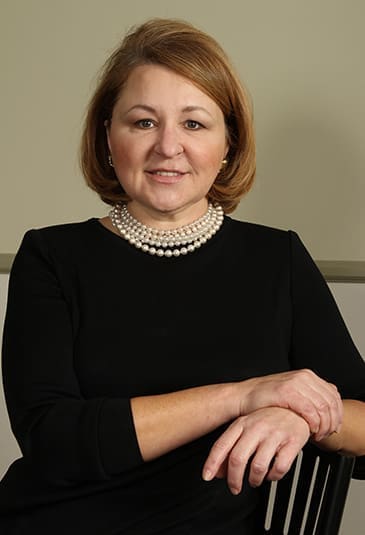Atlanta
Anno Hardage Tapped For Catholic Charities Atlanta Role
By ANDREW NELSON, Staff Writer | Published March 15, 2012
When she was chancellor of the archdiocese in the late 1990s, Anno Hardage helped oversee the “Building the Church of Tomorrow” campaign that generated over $70 million to help build new Catholic schools and campus centers, fund endowments for archdiocesan needs, and give parishes a share of the donations for their big-ticket projects.
A dozen years after resigning as chancellor, she is again serving the Church, this time at Catholic Charities Atlanta where she will build a road map to new donors in a changed fundraising environment.
From Facebook friends to donations with text messages, nonprofits rely on technology to get their message out and measure their successes. There is also an even greater need for accountability, she said.

Anno Hardage is the new chief development and marketing officer for Catholic Charities Atlanta. The mother of two adult children is a member of Holy Spirit Church, Atlanta. Photo By Michael Alexander
“The process of tapping financial resources is no longer a matter of just having a good cause and then writing a compelling letter. We must have the metrics in place to evidence the impact of our services. There is no room for financial fuzziness. The degree of clarity is as important as it is in the private sector,” she said in an email.
After working for the archdiocese in various capacities for 10 years, Hardage stepped down in 1999. At the time, she was one of the few women to hold the position of chancellor in a U.S. archdiocese. She left to manage financial portfolios and provide client services for families for Corner Cap Investment Counsel.
A mother of two grown children, she lives in Sandy Springs and attends Holy Spirit Church, Atlanta. She holds a master’s in business administration from Georgia State University.
Hardage, 53, said in recent years she has been interested in the ability of “social innovators partnering with public, private and nonprofit” organizations to work together to resolve issues. She said she’s watched how Catholic Charities Atlanta has become “a highly respected, nationally recognized advocate for family stabilization and self-sufficiency.”
Catholic Charities Atlanta is a nationally accredited nonprofit. It has a nearly $6 million budget, with approximately 88 percent of its donations going to pay for client services, according to its websites. Nearly 22,000 people a year turn to Catholic Charities Atlanta for help. Most of its funding comes from private grants and foundations. The Atlanta Archdiocese contributes some 6 percent to its budget.
The organization focuses on immigration legal services, refugee resettlement, outpatient mental health counseling, crisis pregnancy counseling, disaster preparedness, in-home parent education, and family stabilization, said Hardage.
“While we cannot be all things to all people, we are able to sustain these programs and serve and grow an additional 15 percent in clients a year,” she said.
Her position as the chief development and marketing officer of Catholic Charities Atlanta is a new senior-level executive post. Her task is to develop a new model of raising money that is “not subject to an annual budget cycle.” The long-term goal is to build an endowment to fund the agency, in addition to its existing financial supporters, she said.
During the 1990s, Hardage was a key leader in the archdiocese. She also served as the executive director of the North Georgia Catholic Foundation, a corporation for planned giving and endowments, which grew during that time from $6 million to $12 million in endowments.
The different economic times mean using new tools to raise money and connect with benefactors, said Hardage, but key factors haven’t changed.
“We still must earn the right to ask for money. We are only stewards of our donors’ time, talent and treasure, and we must remain accountable and transparent in how we use those gifts,” she said.